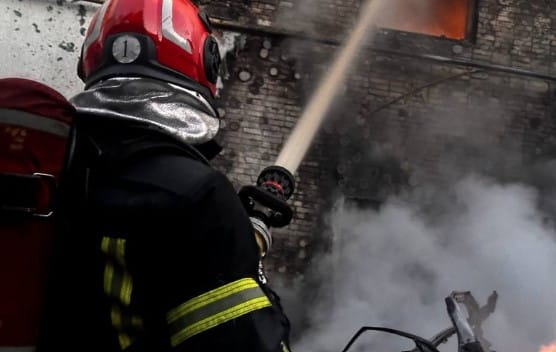South Sudan's Political Crisis Deepens: Vice President Machar Under House Arrest

On March 26, 2025, South Sudan's fragile peace process was thrown into turmoil as First Vice President Riek Machar was reportedly placed under house arrest in the capital city of Juba. This development marks a significant escalation in the long-standing rivalry between Machar and President Salva Kiir, threatening to unravel the delicate power-sharing agreement that has kept an uneasy peace in the world's youngest nation since 2018.
Background of the Conflict
South Sudan gained independence from Sudan in 2011, following decades of civil war. However, the country quickly descended into its own internal conflict in 2013 when President Kiir, a member of the Dinka ethnic group, accused his then-deputy Machar, who is Nuer, of attempting a coup. This sparked a brutal five-year civil war that resulted in:
- Approximately 400,000 deaths
- Displacement of nearly one-third of the country's population
- Severe economic disruption, including the shutdown of oil production
- Widespread human rights abuses and ethnic violence
The conflict officially ended with the signing of a peace agreement in 2018, which reinstated Machar as First Vice President in a unity government. However, the implementation of this agreement has been fraught with challenges and delays.
Details of Machar's Arrest
According to reports from Machar's Sudan People's Liberation Movement in Opposition (SPLM-IO) party, the events unfolded as follows:
- Late on March 26, an armed convoy of over 20 vehicles, led by the defense minister and chief of national security, forcibly entered Machar's residence in Juba.
- Machar's bodyguards were disarmed, and he was presented with an arrest warrant citing unspecified charges.
- Both Machar and his wife, Angelina Teny, who serves as the interior minister, were placed under house arrest.
- Attempts were reportedly being made to relocate Machar, raising concerns about his safety and whereabouts.
Reath Muoch Tang, acting chairperson of the SPLM-IO's National Committee on Foreign Relations, condemned the arrest as a "clear violation of the constitution and the Revitalized Peace Agreement"[1]. He emphasized that no legal procedures, such as lifting Machar's immunity, were followed.
Immediate Reactions and Concerns
The arrest of Machar has sparked immediate concern both within South Sudan and internationally:
- United Nations Response:
The UN Mission in South Sudan (UNMISS) issued a statement calling for restraint and urging all parties to uphold the Revitalized Peace Agreement. Nicholas Haysom, the UN Secretary-General's Special Representative to South Sudan, warned that unilateral actions risked "returning the country to a state of war"[1:1]. - International Diplomatic Efforts:
Regional leaders have quickly engaged in diplomatic efforts to defuse the situation. William Ruto, president of neighboring Kenya, announced that he had spoken with President Kiir and was sending a special envoy to Juba. Ruto also consulted with the presidents of Uganda and Ethiopia, highlighting the regional implications of the crisis[2]. - U.S. State Department:
The United States expressed concern over Machar's reported house arrest, urging President Kiir to "reverse this action and avert further escalation of the situation"[3]. Both the U.S. and UK announced plans to reduce their embassy staff in South Sudan due to the escalating insecurity. - SPLM-IO Party Statement:
Machar's party declared that his detention effectively collapses the 2018 peace agreement. Oyet Nathaniel Pierino, deputy chair of the SPLM-IO, stated that this action "effectively brings the agreement to a collapse, thus the prospect for peace and stability in South Sudan has now been put into serious jeopardy"[2:1].
Recent Tensions Leading to the Crisis
The arrest comes amid escalating tensions between Kiir and Machar's factions:
- In February 2025, clashes erupted in Upper Nile State between South Sudanese military personnel and the White Army, a largely Nuer militia that had previously fought alongside Machar during the civil war.
- The government recently accused Machar's SPLM-IO party of colluding with the White Army, reminiscent of the tensions that led to Machar's dismissal as vice president in 2013.
- The SPLM-IO has denied ongoing connections with the White Army.
- Recent weeks have seen the unraveling of power-sharing arrangements as entrenched political and ethnic strife has resurfaced.
- The UN reported that violence has displaced at least 50,000 individuals since February, with over 10,000 fleeing into Ethiopia for safety.
Implications for South Sudan's Future
The detention of Machar poses significant risks to South Sudan's stability and future:
- Threat to the Peace Agreement:
The 2018 peace deal, which was already fragile, now faces a serious threat of collapse. The agreement's key provisions, including power-sharing and the integration of armed forces, may be jeopardized. - Risk of Renewed Conflict:
There are fears that Machar's arrest could trigger a return to widespread violence. The UN has warned that the country stands on the brink of relapsing into conflict, which could devastate South Sudan and affect the entire region. - Humanitarian Concerns:
Any escalation of conflict would likely worsen the already dire humanitarian situation in South Sudan, potentially leading to further displacement and food insecurity. - Economic Impact:
The political instability threatens to derail efforts to revive South Sudan's economy, particularly its crucial oil sector. - Regional Stability:
The crisis in South Sudan has implications for neighboring countries, potentially leading to refugee flows and regional instability.
International Community's Role
The international community faces the challenge of preventing South Sudan from sliding back into full-scale civil war:
- The UN, African Union, and regional bodies like IGAD (Intergovernmental Authority on Development) will likely intensify diplomatic efforts to mediate between Kiir and Machar.
- There may be calls for increased peacekeeping presence or targeted sanctions against those undermining the peace process.
- International donors and partners will need to reassess their engagement with South Sudan in light of these developments.
Conclusion
The house arrest of First Vice President Riek Machar represents a critical juncture for South Sudan. It threatens to unravel the fragile peace that has held since 2018 and risks plunging the country back into conflict. The coming days and weeks will be crucial in determining whether diplomatic efforts can defuse the situation and salvage the peace agreement.
As South Sudan stands at this crossroads, the actions of President Kiir, Machar's supporters, and the international community will be pivotal in shaping the country's future. The world watches anxiously, hoping that South Sudan can step back from the brink and continue on the path towards lasting peace and stability.
https://english.news.cn/africa/20250327/270669dabc4a43b1a525ede52db1ff15/c.html ↩︎ ↩︎
https://www.cbc.ca/news/world/south-sudan-vice-president-house-arrest-collapse-1.7494728 ↩︎ ↩︎
https://www.reuters.com/world/africa/us-urges-south-sudan-president-release-vp-machar-who-is-reportedly-under-house-2025-03-27/ ↩︎




